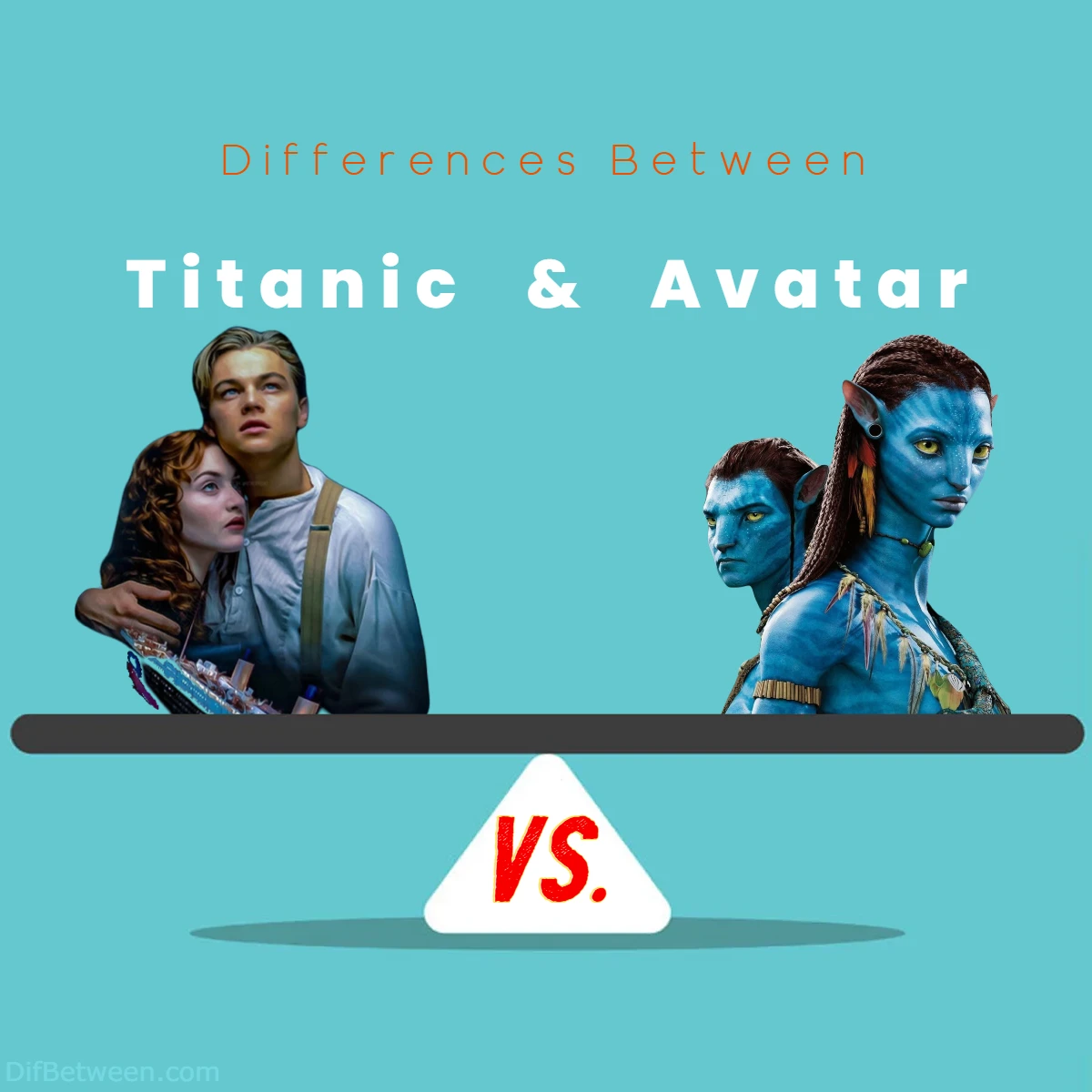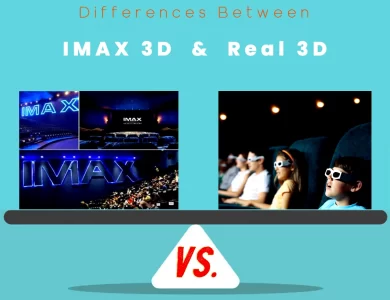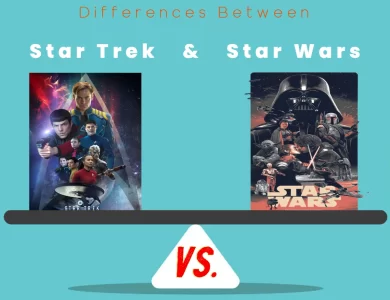
| Aspect | Titanic | Avatar |
|---|---|---|
| Genre | Historical Romance, Disaster Drama | Science Fiction, Action, Adventure |
| Setting | RMS Titanic, 1912, North Atlantic | Pandora, Moon of Polyphemus, 2154 |
| Main Theme | Love transcending class barriers | Nature, Colonialism, Cultural Clash |
| Visual Effects | Meticulous sets, Practical effects, Sinking scene realism | Cutting-edge 3D, Motion-capture, CGI |
| Director | James Cameron | James Cameron |
| Central Characters | Jack Dawson, Rose DeWitt Bukater | Jake Sully, Neytiri, Colonel Quaritch |
| Box Office Success | Massive hit, Awards, Cultural Phenomenon | Second-highest-grossing film, 3D Impact |
| Legacy | Iconic quotes, Cultural impact, Historical accuracy | Technological innovation, 3D film impact |
| Soundtrack | Haunting melodies, “My Heart Will Go On” | Ethereal soundscapes, Immersive music |
| Sequels | None | Upcoming sequels, Expanding universe |
| Themes | Class division, Tragedy, Love | Environmentalism, Technology, Unity |
Imagine being transported to the opulent interiors of the RMS Titanic, where the love story of Jack and Rose unfolds against the backdrop of class divisions. Feel the thrill as the Titanic’s sinking scene comes alive with stunning realism, showcasing the mastery of practical effects. On the other hand, envision yourself on the lush moon of Pandora, immersed in the ethereal beauty of its otherworldly landscapes and entwined in the delicate threads of cultural clashes and environmentalism. The visionary prowess of James Cameron shines through in both these masterpieces, and the choice before you is akin to selecting a path to embark on – a journey into the past with “Titanic” or an expedition into the future with “Avatar.”
Differences Between Titanic and Avatar
The main differences between “Titanic” and “Avatar” lie in their genres, settings, themes, and visual effects. “Titanic,” a historical romance and disaster drama, transports viewers to the ill-fated voyage of the RMS Titanic in 1912, highlighting a love story that defies class barriers. In contrast, “Avatar,” a science fiction masterpiece, whisks audiences to the lush moon of Pandora in 2154, delving into themes of nature, colonialism, and technology. While “Titanic” captivates with its historical accuracy and emotional resonance, “Avatar” dazzles with cutting-edge 3D technology and immersive world-building. These distinctive factors showcase the unique charm and impact of each film, catering to different cinematic preferences.
1. Storyline and Setting
Titanic: A Tragic Romance on the High Seas
“Titanic,” directed by James Cameron, takes us on a journey back to the ill-fated maiden voyage of the RMS Titanic in 1912. At its heart, the film is a tragic romance between Jack Dawson, a penniless artist, and Rose DeWitt Bukater, a first-class passenger engaged to a wealthy suitor. The Titanic itself serves as a microcosm of society, highlighting the stark divide between the classes as the ship makes its way across the Atlantic. The heart-wrenching climax comes as the ship strikes an iceberg and slowly sinks, setting the stage for a dramatic struggle for survival.
Avatar: A Sci-Fi Epic in an Alien World
“Avatar,” also directed by James Cameron, couldn’t be more different in terms of its genre and setting. Set in the year 2154, the film whisks us away to the lush moon of Pandora, where a paralyzed Marine named Jake Sully becomes part of the Avatar Program. The program allows humans to remotely control genetically engineered alien bodies to interact with the indigenous Na’vi people and gather resources. As Jake becomes immersed in Na’vi culture and falls in love with a Na’vi woman, Neytiri, he must navigate the complex interplay between corporate interests, environmentalism, and the clash of civilizations.
2. Themes and Motifs
Titanic: Love and Social Class
The central theme of “Titanic” revolves around the power of love transcending societal barriers. The love story between Jack and Rose challenges the norms of class distinction, highlighting the stark contrast between the opulent luxury of the upper class and the struggles of the lower class. The sinking of the ship becomes a metaphor for the fleeting nature of wealth and status, while Jack’s sacrifice to save Rose underscores the purity of their love that knows no boundaries.
Avatar: Nature and Colonialism
“Avatar” delves into themes of environmentalism, exploitation, and the destructive impact of human greed on nature. The film’s portrayal of the Na’vi people and their deep connection with Pandora’s ecosystem serves as a commentary on the destructive consequences of corporate-driven colonialism. The film’s tagline, “You’re not in Kansas anymore,” underscores the idea of humans being out of their element and the need to respect and coexist with foreign environments rather than exploit them.
3. Visual Effects and Cinematic Innovation
Titanic: Realism in Historical Recreation
“Titanic” is renowned for its meticulous attention to historical detail and the recreation of the ship’s opulent interiors. The film’s special effects were groundbreaking at the time, particularly in depicting the ship’s sinking with stunning realism. The extensive use of practical effects, miniatures, and elaborate sets contributed to the film’s authenticity and emotional impact.
Avatar: Pushing the Boundaries of Technology
In contrast, “Avatar” pushed the boundaries of technology with its pioneering use of 3D and motion-capture technology. The film’s visual effects were groundbreaking, as it seamlessly blended live-action footage with computer-generated environments and characters. The lush landscapes of Pandora and the lifelike appearance of the Na’vi showcased the potential of modern cinematic technology to create immersive worlds that were previously unimaginable.
4. Cultural Impact and Box Office Success
Titanic: Unprecedented Box Office Triumph
“Titanic” took the world by storm upon its release in 1997. The film became a cultural phenomenon, breaking box office records and winning 11 Academy Awards, including Best Picture. The tragic romance between Jack and Rose resonated deeply with audiences, and the film’s iconic scenes and quotes have become ingrained in pop culture.
Avatar: Shaping the 3D Film Landscape
“Avatar,” released in 2009, made a monumental impact on the film industry with its innovative use of 3D technology. The film’s immersive visual experience drew audiences into the alien world of Pandora like never before. Its massive box office success, second only to “Avengers: Endgame,” demonstrated the potential of 3D films to captivate audiences and solidified its position as one of the highest-grossing films of all time.
5. Directorial Vision and Legacy
Titanic: A Passion Project and Cultural Touchstone
“Titanic” was a passion project for James Cameron, who dedicated years to researching the ship’s history and ensuring the film’s accuracy. His dedication paid off, as the film’s emotional resonance and historical authenticity left an indelible mark on cinema. The film’s success cemented Cameron’s status as a visionary director capable of bringing grand-scale stories to life.
Avatar: Pushing Cinematic Boundaries
“Avatar” marked another visionary achievement for James Cameron. His commitment to technological innovation and storytelling shone through in the film’s creation. While the film’s sequels have been highly anticipated, “Avatar” remains a benchmark for cinematic innovation and a reminder of Cameron’s ability to push the boundaries of what’s possible in filmmaking.
6. Character Dynamics and Relationships
Titanic: Love Across Divides
In “Titanic,” the central romantic relationship between Jack and Rose takes center stage. Their love story, born amidst the stark divisions of social class, becomes a powerful symbol of unity and resilience. As Rose’s engagement to the wealthy but controlling Cal Hockley unravels, her connection with Jack blossoms into a heartfelt bond that transcends their differing backgrounds. The chemistry between Leonardo DiCaprio and Kate Winslet brought their characters to life, evoking empathy and investment from the audience.
Avatar: Bridging Two Worlds
“Avatar” explores the intricate relationship between the human protagonist, Jake Sully, and the Na’vi woman, Neytiri. Through Jake’s immersion in Na’vi culture, he not only falls in love with Neytiri but also develops a profound connection to Pandora’s ecosystem and its inhabitants. This dynamic symbolizes the potential for mutual understanding and cooperation between different species, emphasizing the importance of empathy and open-mindedness in bridging cultural gaps.
7. Music and Score
Titanic: The Enchanting Melodies
The hauntingly beautiful musical score of “Titanic,” composed by James Horner, has become synonymous with the film’s emotional impact. The iconic love theme, “My Heart Will Go On,” performed by Celine Dion, became an anthem for the film and earned an Academy Award for Best Original Song. The score’s ability to evoke a range of emotions, from romance to tragedy, contributed significantly to the film’s emotional resonance.
Avatar: Ethereal Soundscapes
James Cameron once again collaborated with composer James Horner to create the musical backdrop for “Avatar.” The score features ethereal and immersive soundscapes that enhance the otherworldly atmosphere of Pandora. The use of traditional instruments and vocals from various cultures adds depth to the film’s setting, enveloping the audience in the rich auditory tapestry of the alien moon.
8. Reception and Critique
Titanic: Critical Acclaim and Public Adoration
“Titanic” garnered both critical acclaim and widespread popularity. Its success was reflected not only in its box office earnings but also in the numerous awards it received, including multiple Oscars. The film’s balance of historical accuracy, romance, and disaster drama resonated with audiences of all ages, solidifying its place in cinematic history.
Avatar: A Technological Marvel
Upon its release, “Avatar” was celebrated for its groundbreaking use of technology and its immersive 3D experience. Critics and audiences alike praised the film’s visual spectacle and its ability to transport viewers to a new world. Some critics, however, noted that the plot and character development were overshadowed by the film’s technical achievements. Nevertheless, the film’s impact on the film industry and its lasting legacy cannot be denied.
9. Subsequent Projects and Sequels
Titanic: A Singular Classic
“Titanic” remains a singular classic that has not spawned direct sequels or spin-offs. Its enduring legacy is preserved through its original film and the cultural impact it continues to have on audiences. The film’s resonance with historical events ensures its place in discussions about the golden age of cinema.
Avatar: Expanding the Universe
James Cameron’s vision for “Avatar” extends beyond the original film. The director embarked on creating a series of sequels that further explore the world of Pandora and its inhabitants. The first of these sequels, “Avatar 2,” is highly anticipated and is expected to continue the story of Jake and Neytiri while introducing new characters and challenges. The expansion of the “Avatar” universe showcases Cameron’s commitment to fully realizing his creative vision.
Titanic or Avatar: Which One is Right for You?
When it comes to choosing between the epic tales of “Titanic” and “Avatar,” both films offer unique and captivating experiences that cater to different preferences and interests. Whether you’re drawn to historical romance or otherworldly adventure, each film has its own charm that could resonate with you. Let’s break down the factors to consider when deciding which one is right for you.
1. Historical Drama vs. Sci-Fi Fantasy
Choose “Titanic” if:
- You’re fascinated by real historical events and enjoy period dramas that transport you to a bygone era.
- You appreciate stories that explore societal dynamics and class divisions in a gripping and emotional manner.
- Romantic narratives that tug at your heartstrings are your cinematic preference.
- The allure of a tragic, real-life event and the intricate details of the past captivate your imagination.
Choose “Avatar” if:
- You have a penchant for imaginative worlds and enjoy science fiction that explores alien landscapes and cultures.
- Environmental themes and the clash between nature and technology intrigue you.
- High-tech visual effects and immersive 3D experiences are a major draw for you.
- You’re open to stories that delve into the harmony and conflicts between humans and alien civilizations.
2. Emotional Resonance vs. Visual Spectacle
Choose “Titanic” if:
- Deeply emotional and heartfelt narratives resonate with you.
- You’re moved by stories of love that transcend social barriers and challenges.
- Historical accuracy and attention to detail enhance your cinematic enjoyment.
- A balance of romance, tragedy, and historical significance is what you seek.
Choose “Avatar” if:
- Cutting-edge visuals and cinematic technology excite you.
- You’re eager to be transported to an entirely new and visually stunning world.
- Themes of environmentalism, cultural understanding, and corporate greed pique your interest.
- You’re drawn to stories that offer a blend of action, adventure, and exploration.
3. Nostalgia vs. Futuristic Exploration
Choose “Titanic” if:
- Nostalgia for the past and the elegance of the early 20th century appeal to you.
- You’re interested in historical tragedies and their impact on society and culture.
- Classic romance stories that have stood the test of time capture your attention.
Choose “Avatar” if:
- You’re a fan of futuristic settings and enjoy imagining the possibilities of advanced technology.
- Exploring alien worlds and cultures in a science fiction context intrigues you.
- Environmental and ethical themes that reflect contemporary concerns resonate with you.
4. Directorial Styles and Film Legacy
Choose “Titanic” if:
- You appreciate films with meticulous attention to historical accuracy and detail.
- You admire the work of director James Cameron and his ability to blend grand-scale storytelling with emotional depth.
- Classic and timeless stories that continue to impact modern culture are your preference.
Choose “Avatar” if:
- You’re a fan of James Cameron’s visionary filmmaking and his dedication to pushing the boundaries of technology.
- You’re excited about film franchises that expand into sequels, offering a more comprehensive exploration of the universe created.
FAQs
“Titanic” and “Avatar” are distinct cinematic experiences with varying genres, settings, and themes. While “Titanic” is a historical romance and disaster drama set aboard the RMS Titanic in 1912, “Avatar” is a science fiction epic that takes place on the alien moon of Pandora in 2154.
“Titanic” focuses on love and class divisions, portraying the tragic sinking of the Titanic as a backdrop to a forbidden romance. In contrast, “Avatar” delves into themes of nature, colonialism, and the clash between technology and the environment, highlighting the conflict between human interests and indigenous cultures on Pandora.
“Titanic” is acclaimed for its meticulous historical recreation and practical effects, particularly the realistic depiction of the ship’s sinking. On the other hand, “Avatar” is known for its groundbreaking use of 3D technology, creating immersive environments and lifelike alien creatures on Pandora.
Both films have left a significant impact, but “Titanic” is recognized for its iconic scenes, memorable quotes, and emotional resonance. “Avatar” revolutionized cinematic technology with its 3D innovation and immersive world-building.
“Titanic” is renowned for its historical accuracy and emotional impact, earning multiple Academy Awards and cementing James Cameron’s directorial reputation. “Avatar” revolutionized 3D technology and remains one of the highest-grossing films, with director James Cameron expanding the universe with upcoming sequels.
If you’re drawn to historical romance and emotional storytelling, “Titanic” offers a compelling narrative. For those intrigued by imaginative worlds and science fiction themes, “Avatar” provides an immersive and visually stunning experience on Pandora.
Absolutely! Both films offer something for various tastes. “Titanic” appeals to those who enjoy emotional dramas and historical contexts, while “Avatar” attracts fans of adventure, science fiction, and innovative visual effects.
James Cameron’s direction shines through in both films. “Titanic” reflects his commitment to historical accuracy and emotional storytelling, while “Avatar” demonstrates his visionary approach to technology and world-building.
Your choice depends on your preferences. If you’re seeking a poignant love story set against historical events, start with “Titanic.” For an otherworldly adventure with a focus on nature and technology, “Avatar” is the perfect choice. Both films promise unforgettable journeys into different realms of storytelling.
Read More:




